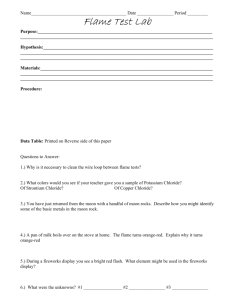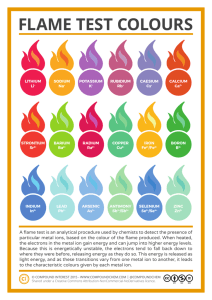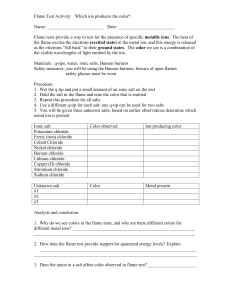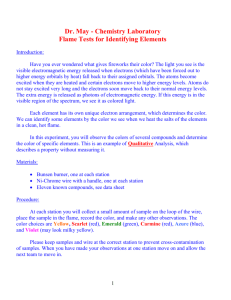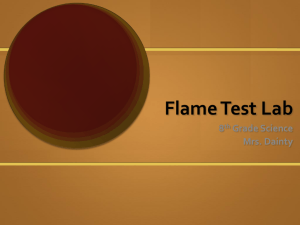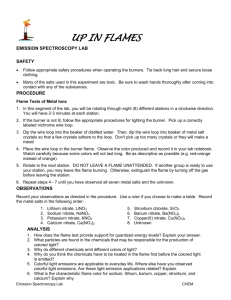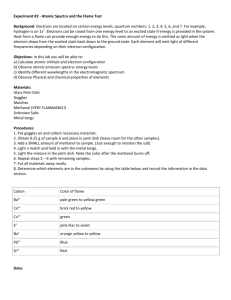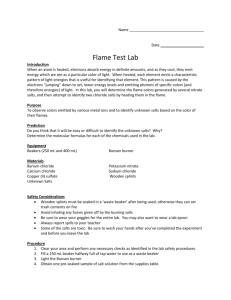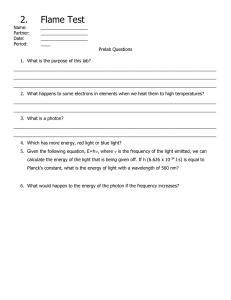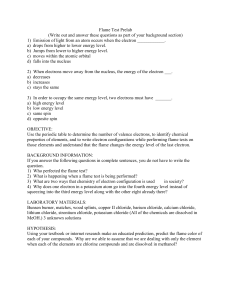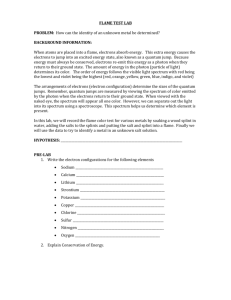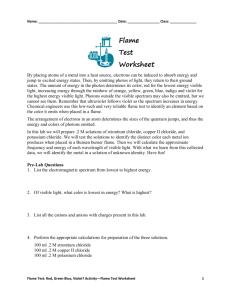Flame Test
advertisement
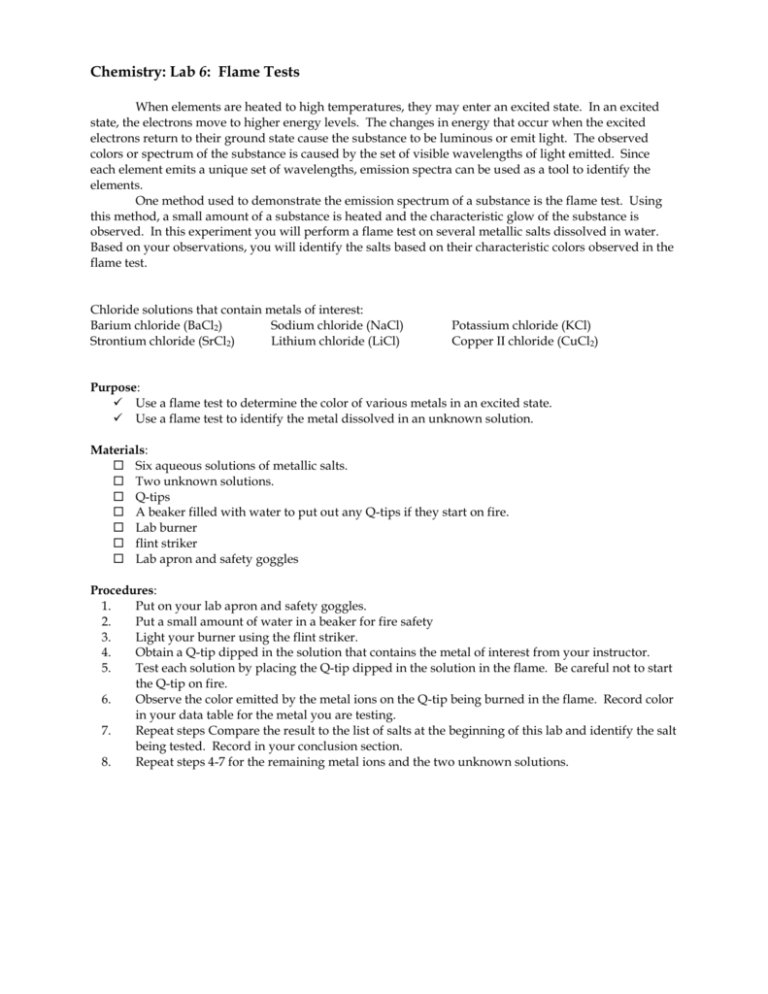
Chemistry: Lab 6: Flame Tests When elements are heated to high temperatures, they may enter an excited state. In an excited state, the electrons move to higher energy levels. The changes in energy that occur when the excited electrons return to their ground state cause the substance to be luminous or emit light. The observed colors or spectrum of the substance is caused by the set of visible wavelengths of light emitted. Since each element emits a unique set of wavelengths, emission spectra can be used as a tool to identify the elements. One method used to demonstrate the emission spectrum of a substance is the flame test. Using this method, a small amount of a substance is heated and the characteristic glow of the substance is observed. In this experiment you will perform a flame test on several metallic salts dissolved in water. Based on your observations, you will identify the salts based on their characteristic colors observed in the flame test. Chloride solutions that contain metals of interest: Barium chloride (BaCl2) Sodium chloride (NaCl) Strontium chloride (SrCl2) Lithium chloride (LiCl) Potassium chloride (KCl) Copper II chloride (CuCl2) Purpose: Use a flame test to determine the color of various metals in an excited state. Use a flame test to identify the metal dissolved in an unknown solution. Materials: Six aqueous solutions of metallic salts. Two unknown solutions. Q-tips A beaker filled with water to put out any Q-tips if they start on fire. Lab burner flint striker Lab apron and safety goggles Procedures: 1. Put on your lab apron and safety goggles. 2. Put a small amount of water in a beaker for fire safety 3. Light your burner using the flint striker. 4. Obtain a Q-tip dipped in the solution that contains the metal of interest from your instructor. 5. Test each solution by placing the Q-tip dipped in the solution in the flame. Be careful not to start the Q-tip on fire. 6. Observe the color emitted by the metal ions on the Q-tip being burned in the flame. Record color in your data table for the metal you are testing. 7. Repeat steps Compare the result to the list of salts at the beginning of this lab and identify the salt being tested. Record in your conclusion section. 8. Repeat steps 4-7 for the remaining metal ions and the two unknown solutions. Lab 6: Flame Test Experiment Name ______________________________ ______________________________ Group: ________ Period _____________ Data and Observations: Solution Color in flame Solution Color in flame Barium Light Green ___ Potassium Light Purple __ Copper Green _________ Sodium Yellow _______ Lithium Crimson Red __ Strontium Orange ______ Solution Color in flame Unknown 1 Red ___________ Unknown 2 Orange _______ Conclusion: 1. What metal was found in Unknown 1? ________________________________ a. 2. How did you determine this? What metal was found in Unknown 2? ________________________________ a. How did you determine this?
